Now...of Independent (& Interdependent) Local Christian Academic Communities…and More
Christians have a long and distinguished history in establishing and building academic institutions in America; they have played a major role in the founding of such prestigious institutions of higher learning as Harvard, Yale, William and Mary and many more. As a matter of fact, of the first 108 universities and colleges founded in America all but two were inaugurated by Christians.
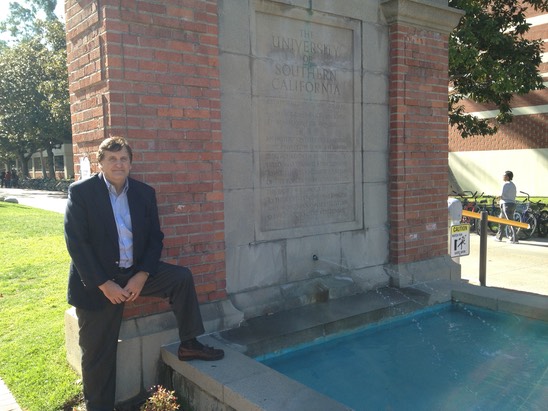
USC Establishment Memorial
Located on the campus of the University of Southern California (Los Angeles);
34° 01’21.04” N 118° 17’01.97 W
Photo Credit: Paul Ernst
For example, the inscription on this memorial at the University of Southern California reads (see photo right) reads:
“ESTABLISHED HERE JULY 29, 1879. TO THE GLORY OF GOD AND TO THE PRESERVATION OF THE REPUBLIC
***
AN INSTITUTION OF HIGHER LEARNING DEDICATED TO THE SEARCH FOR TRUTH - DESEMINATION OF THE TRUTH - TO FREEDOM OF THOUGHT & DISCUSSION - TO INTELLIGENT UNBIASED ANALYSIS OF THE FORCES THAT HAVE SHAPED THE PAST- WHO WILL MOLD THE FUTURE - TO THE DEVELOPMENT OF MANHOOD AND WOMANHOOD FOR CHRISTIAN SERVICE FOR LOYAL CITIZENSHIP.”
Also, at the University of Southern California (1912) the athletes were known as the Fighting Methodists. Other examples include Oberlin College, which was founded by 2 Presbyterian ministers and the 19th century evangelist Charles Finney who was both a professor and its president for a time. The University of Chicago was founded by the American Baptist Education Society and by the oil magnate John D. Rockefeller.
The 1924 by-laws of Duke University read,
“The aims of Duke University are to assert a faith in the eternal union of knowledge and religion set forth in the teachings and character of Jesus Christ, the Son of God.” Regarding Christian influence, one of the early presidents of the University of Illinois (a public university) said, “We will labor to make this a Christian institution, governed by a body of Christian trustees, conducted by Christian professors.”
The English translation of Harvard University’s original Latin motto was “Truth for Christ and the Church” (Veritas Pro Christo et Ecclesia), shortened in 1843 to “Truth” (Veritas). The official motto adopted in 1692 better fits with Harvard’s educational purpose (see Rules and Precepts 1646) which was:
"Let every Student be plainly instructed, and earnestly pressed to consider well, the maine end of his life and studies is, to know god and Jesus Christ which is eternal life (John 17:3) and therefore to lay Christ in the bottome, as the only foundation of all sound knowldge and learning. And seeing the Lord only giveth wisdome, Let every one serouusly set himself by prayer in secret to seeke it of him (Prov. 2:3)."
These examples are not anomalies in American educational history. To understate things a bit, Christians in America and the influence of Christianity in America exerted a determinative influence on the building and advancing of higher education from its infancy.
It is also true that a dominant trend in higher education since the middle of the 19th century has been secularization in many forms. Having said that, with an awareness of the degree to which it has been subjected to secularization, we still gladly affirm a great love and appreciation for the university as an institution. There is much to praise about higher education, even in this secularized condition because education has intrinsic value. Knowing is simply better than not knowing. As an organization Academic Connections is NOT committed to trying to return these institutions to Christian ownership, but we believe that Christian scholars should have a place at the table in these institutions and have much to offer.
Thus, we are interested in supporting Christian professors in all the disciplines to flourish and succeed particularly in the secularized academic world, and we interested in how the great things of the gospel has relevance to that flourishing and to their scholarship. We are presently networked with several hundred professors and staff on 80 university and college campuses in the United States and around the world. Relevant to that, one of the things we do as a ministry has been to encourage Christian faculty to form communities at their particular universities (and in some cases in geographically larger venues according to disciplines) to discover together how they and their scholarship can flourish.
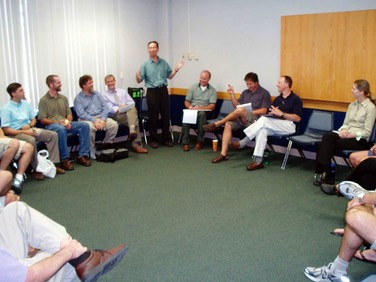
We serve a group of Christian faculty who formed a Christian Faculty Network at Colorado State University. (left)
A snap shot (lower, right) of the original Steering Committee for the Faculty Fellowship we (some of our current staff) helped form at the University of Colorado at Boulder during the 1990s.
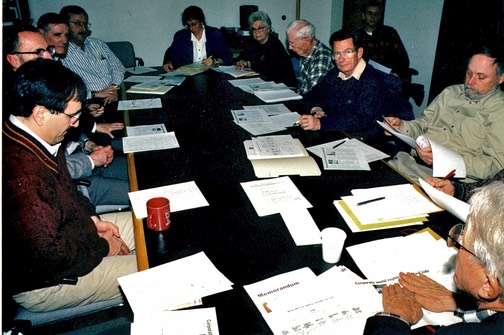
Our staff have helped form groups like this at the University of Colorado in the early and mid-1990s and they continue to actively serve the Christian Faculty Fellowship at the Air Force Academy. We like to encourage Christian faculty--as a matter of truth in advertising--to identify themselves as such. At the Air Force Academy we have had a part in developing a community of Christian professors who aim to exercise their freedom of expression in a way that is appropriate to academe. Here’s a photo from one of their regular meetings for Christian faculty at the Academy:
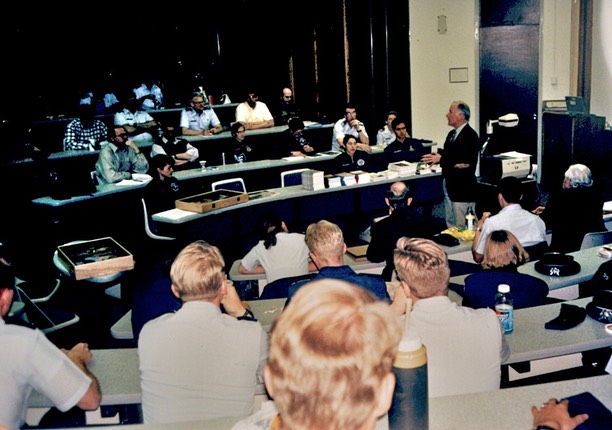
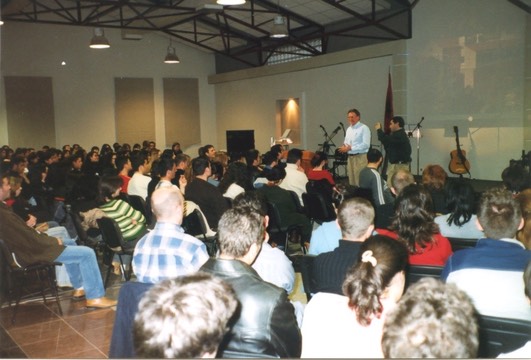
Also, some of our staff have had experience in taking groups of Christian professors overseas to minister to their colleagues. This includes visits to campuses in Russia, Africa, Albania and some of the republics and satellites of the former Soviet Union with the purpose of helping to start Christian academic communities there. The photo to the right is from a trip with faculty to Tirana, Albania. Cheers!
**********
If you would like help in starting a Christian faculty community or fellowship on your campus or would like consult with us regarding advancing the quality or effectiveness of your community, you can contact us at the following email address: acconectionsi@gmail.com
You can also access on-line resources for that on this site: Chapter Formation and Building